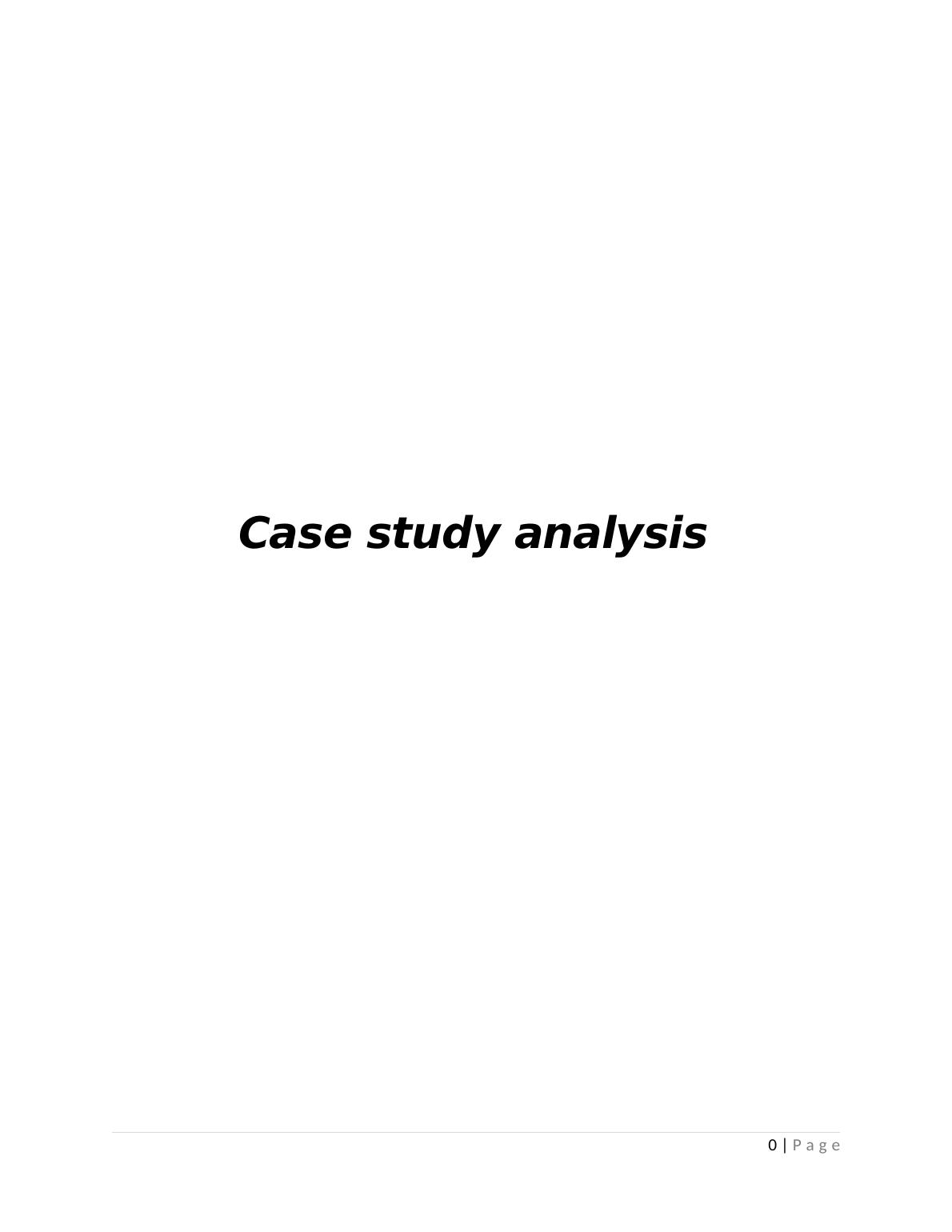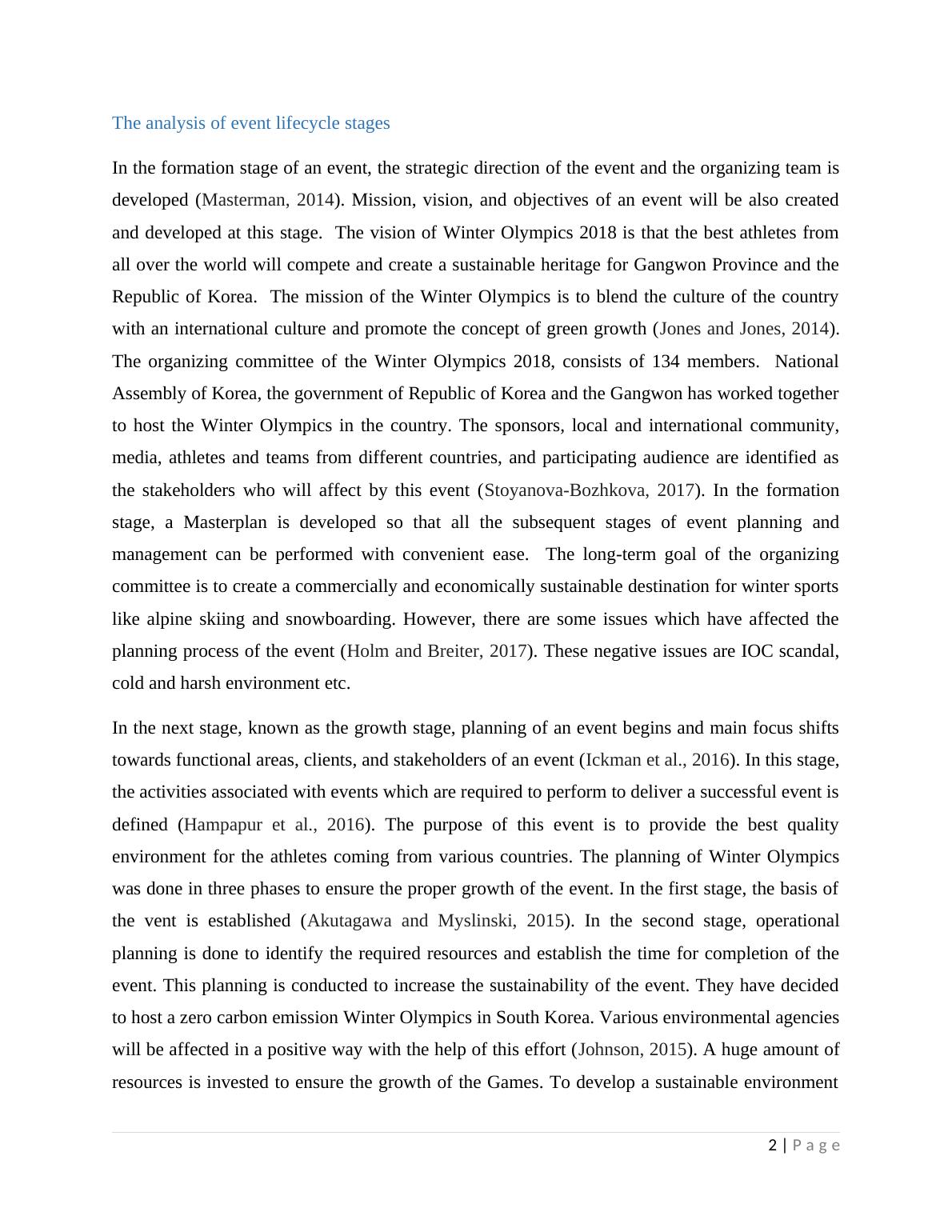Analysis of event lifecycle stages Assignment PDF
Added on 2021-06-17
6 Pages1731 Words20 Views
Case study analysis0 | Page

Table of ContentsThe analysis of event lifecycle stages..........................................................................................................2Recommendations.......................................................................................................................................4References...................................................................................................................................................51 | Page

The analysis of event lifecycle stagesIn the formation stage of an event, the strategic direction of the event and the organizing team isdeveloped (Masterman, 2014). Mission, vision, and objectives of an event will be also createdand developed at this stage. The vision of Winter Olympics 2018 is that the best athletes fromall over the world will compete and create a sustainable heritage for Gangwon Province and theRepublic of Korea. The mission of the Winter Olympics is to blend the culture of the countrywith an international culture and promote the concept of green growth (Jones and Jones, 2014).The organizing committee of the Winter Olympics 2018, consists of 134 members. NationalAssembly of Korea, the government of Republic of Korea and the Gangwon has worked togetherto host the Winter Olympics in the country. The sponsors, local and international community,media, athletes and teams from different countries, and participating audience are identified asthe stakeholders who will affect by this event (Stoyanova-Bozhkova, 2017). In the formationstage, a Masterplan is developed so that all the subsequent stages of event planning andmanagement can be performed with convenient ease. The long-term goal of the organizingcommittee is to create a commercially and economically sustainable destination for winter sportslike alpine skiing and snowboarding. However, there are some issues which have affected theplanning process of the event (Holm and Breiter, 2017). These negative issues are IOC scandal,cold and harsh environment etc. In the next stage, known as the growth stage, planning of an event begins and main focus shiftstowards functional areas, clients, and stakeholders of an event (Ickman et al., 2016). In this stage,the activities associated with events which are required to perform to deliver a successful event isdefined (Hampapur et al., 2016). The purpose of this event is to provide the best qualityenvironment for the athletes coming from various countries. The planning of Winter Olympicswas done in three phases to ensure the proper growth of the event. In the first stage, the basis ofthe vent is established (Akutagawa and Myslinski, 2015). In the second stage, operationalplanning is done to identify the required resources and establish the time for completion of theevent. This planning is conducted to increase the sustainability of the event. They have decidedto host a zero carbon emission Winter Olympics in South Korea. Various environmental agencieswill be affected in a positive way with the help of this effort (Johnson, 2015). A huge amount ofresources is invested to ensure the growth of the Games. To develop a sustainable environment2 | Page

End of preview
Want to access all the pages? Upload your documents or become a member.
Related Documents
Analysis of 2018 Winter Olympic Games in Pyeongchanglg...
|10
|1725
|70
Sustainability of PyeongChang Winter Olympics 2018lg...
|7
|1999
|300
Attraction and Event Management - Doclg...
|7
|1805
|129
Case Study Analysis of 2018 Winter Olympics Held at Pyeongchanglg...
|8
|1947
|354
Attraction and Event Managementlg...
|8
|1575
|318
Analysis of the event life cycle stages of Pyeongchang’s Winter Olympicslg...
|7
|1794
|454